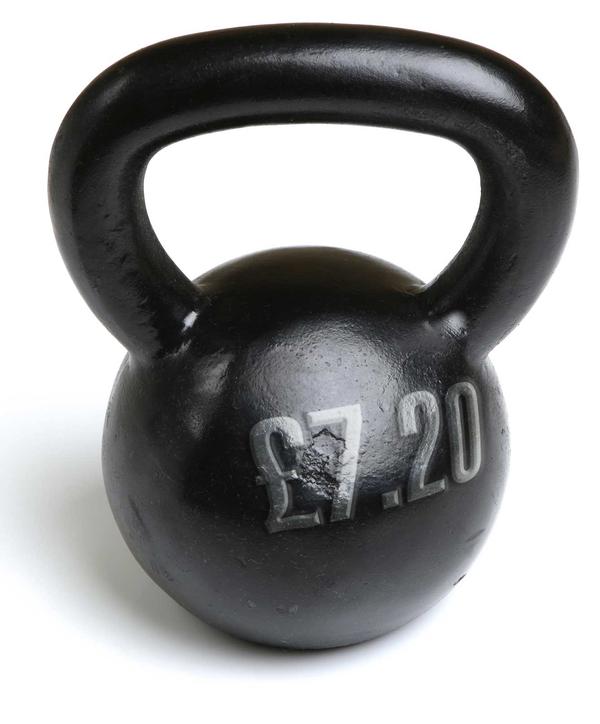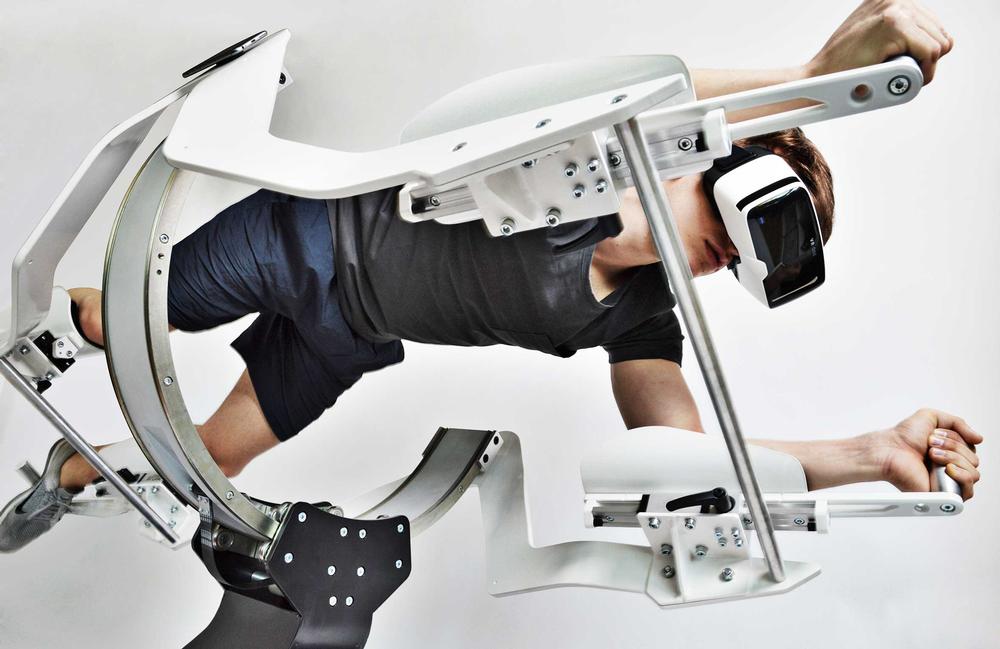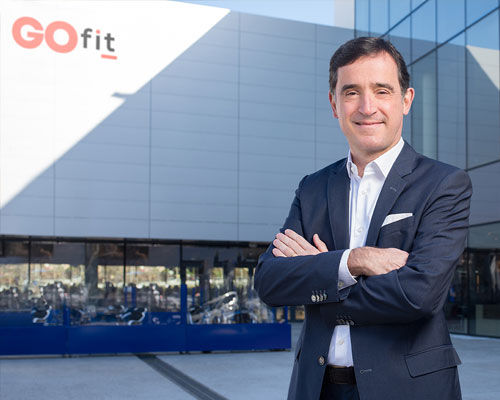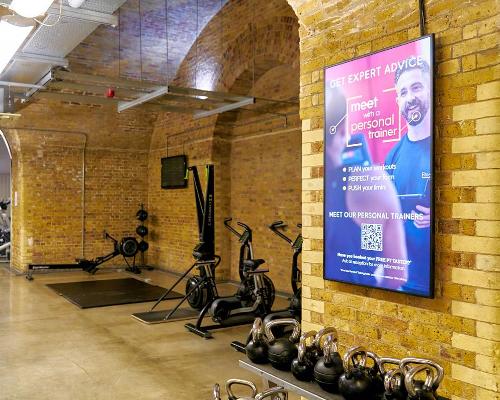features
Everyone’s talking about...: The National Living Wage
Employers everywhere face a huge hike in costs as the implementation of the National Living Wage draws nearer. How will the fitness industry absorb these costs and ensure any strategies are a catalyst for positive change within their organisations? Julie Cramer reports

In just a few months’ time, UK employers will see a significant rise in their wage bills as the National Living Wage – outlined by Chancellor George Osborne in the Summer Budget of 2015 – takes effect.
From April 2016, the starting hourly rate for over-25s will be £7.20 (up from the current minimum wage of £6.50), gradually rising to £9 an hour by 2020. It signals a welcome pay rise for many of the 6 million (or 23 per cent) of UK workers currently earning below a living wage (source: KPMG).
However, as an industry where a large number of workers enter – and often stay – at the lower end of the pay scale, the impact on the health and fitness industry will be significant. As wage bills soar, operators will have to become increasingly resourceful in how they look to balance their books.
Will membership fees have to rise, or will this simply chase away customers who were hard to win in the first place? On the other hand, will better pay attract more talent into the industry and raise skills and standards to a degree that retention increases and business naturally expands?
Other traditionally low-paid industries like food retail have been quicker to embrace the changes: supermarket chain Lidl, followed by Aldi and Morrisons, all raised pay packets over and above the Living Wage in the months after the Chancellor’s announcement. They have pledged that prices for their customers will not rise, although some have made cuts in areas like paid breaks and weekend overtime rates for staff.
For a growing number of employers, paying over and above the National Living Wage is becoming an ethical business consideration.
The Living Wage Foundation, which campaigns for higher pay, has seen its numbers more than double since November 2014: the number of Living Wage employers is up from 1,000 companies to over 2,000 by November 2015 (including almost a third of the FTSE 100 companies). All companies accredited by the Foundation commit to paying £9.40 an hour in London and a rate of £8.25 elsewhere.
According to Living Wage Foundation director Sarah Vero: “These employers aren’t waiting for government to tell them what to do. Their actions are helping to end the injustice that is in-work poverty in the UK now.”
In particular, the Foundation draws attention to research by Public Health England on the strong link between pay and wellbeing. The study shows that low income “is associated with worse outcomes across virtually all domains, including long-term health and life expectancy” and “with a greater risk of limiting illness and poor mental health”.
As an industry whose main remit is to improve the nation’s health, enabling the good health of fitness sector employees by paying them a living wage would seem like a good place to start.
But without the profit margins of sectors like banking, how will the fitness industry afford it? What measures can it implement to mitigate the imminent wage bill rise, and are there rocky times ahead? We ask the experts.
Tim Baker,
Chair,
Touchstone Partners

The fitness industry, along with others, sees itself on the wrong side of the new Living Wage legislation. While it hasn’t been openly identified alongside the care, hospitality and retail industries, the issues are the same: how can the industry afford to implement the living wage within current business models?
However inept he is with achieving it, I must confess some sympathy with George Osborne’s stated goal of paying people enough that they don’t need to rely on welfare handouts to survive. Any business model that is predicated on the state supplementing pay packets has, on the face of it, got to be a pretty weak model. It leaves the major cost item – wages – at the whim of the state, and the rules have been changed. Business models must change too.
This is an opportunity for the fitness industry. Overall, the sector can be seen as a force for good: it encourages healthy living, it employs young people and it offers meaningful apprenticeships for trainees. It invests in itself.
Hospitality and retail don’t have the same positive potential for society, yet some retailers – which operate on classically low margins – have gained kudos by saying that they will absorb the additional costs. It’s likely that more companies will have to follow.
The fitness industry will have to afford the Living Wage. It’s no good saying it can’t: it needs to deal with the new reality.
This may result in higher membership fees across the board, but any hike will likely result in lower numbers of members, particularly at the lower-cost end. Health clubs could choose to strip out much of the salary cost and work on more automated models where fitness equipment is available and any personal help beyond the minimum is charged out. Others may choose to enhance their personal service and presence in order to create compelling reasons to remain a member at the higher price.
Other operators may choose to become more creative, stepping outside of the usual price/value – service/high-end continuum and exploring other ways of generating additional revenue. One potential route could be to embrace the industry’s ‘force for good’ positioning by joining up with local authorities and other service providers.
Could the gym extend its services to, say, care home visits, running regular sessions for residents? Could it extend to home visits, or regular provision at day centres or partnership with schools and colleges? All these avenues must now be explored.
"The fitness industry will have to afford the Living Wage. It’s no good saying it can’t: it needs to deal with the new reality" - Tim Baker

Martin Guyton,
CEO,
tmactive (Tonbridge & Malling Leisure Trust)

I don’t believe the government has properly considered the implications of its new National Living Wage. Firstly there’s no means testing, so a 25-year-old living at home with their parents with no financial responsibilities will automatically be better off than a married 23-year-old with a family, which can’t be right.
Secondly, it’s going to make it a lot harder for our sector to recruit staff when we need them. We employ a lot of young people working on the front line. Many of these young workers are on zero hours contracts – and for all the negative press these provoke, our experience is that a lot of people in our industry enjoy the flexibility these contracts offer.
The National Living Wage will narrow the gap between the casual hourly wage and that of the permanent contract rate. As a result, I expect some of our permanent employees will move to the more flexible hourly wage. This will make it difficult for us to staff our centres during unsociable times, namely evenings and weekends. Some operators may struggle to keep their facilities open during these times.
Another concern is the apparent conflict between this legislation and age discrimination legislation. Many in our sector could conceivably have a frontline job paying £14,000 per annum as a catering assistant or lifeguard. At 40 hours a week, that calculates to an hourly rate lower than the minimum wage for a 25-year-old. How would they employ a 25-year-old into that role, to whom they would have to pay more, without having to be age discriminatory?
The cost of the National Living Wage will be significant and for us may well run into five figures, but it’s something we’ll absorb – I don’t envisage raising prices to pay for it. Sadly, I do think the new wage will mean that older people in our sector will find themselves less employable, simply because it will be cheaper to employ under-25s. While that’s not something we at tmactive will be doing, I can’t speak for others in the sector.
"Older people in our sector will find themselves less employable, because it will be cheaper to employ those under the age of 25' - Martin Guyton

Emma Kosmin,
Programme manager,
Living Wage Foundation

We offer a voluntary scheme through which organisations can sign up as Living Wage employers and be awarded our Employer Mark, and we’re seeing more enquiries from employers from all sectors who are interested in understanding whether the Living Wage can work for them.
This is something that consumers are very interested in too. Customers already judge companies on whether they’re eco-friendly and fair trade-focused, but increasingly they want to know that staff are receiving a sustainable wage too.
We offer an online interactive map where consumers can easily search for accredited Living Wage Employers around the country. Health and leisure are popular search terms, and while there’s a growing band of healthcare providers joining our scheme, the leisure sector is currently lagging behind. We need more leaders in this field.
When a consumer decides to join a gym, they’re becoming part of a community – it’s a business they will interact with week in, week out – and many want to be assured that the gym and reception staff they come to know so well are being fairly paid.
The benefits for a business to become a Living Wage Employer are immense. Absenteeism can drop by 25 per cent as staff become less stressed; staff retention also improves, so companies spend less on recruitment and new training.
Even in some of the traditionally low-paid sectors like social care and childcare, we’ve seen employers make the Living Wage work for them. Where there’s leadership and a genuine will to do it, they can certainly succeed.
"While there’s a growing band of healthcare providers joining our scheme, the leisure sector is currently lagging behind' - Emma Kosmin
Tara Dillon,
CEO,
CIMSPA

Whether we like it or not, the National Living Wage is coming our way. Also looming on the horizon is the new apprenticeship levy, both of which represent very real challenges for operators unless they take steps now to prepare. We can’t avoid these developments, so we need to manage them to our advantage.
Announced in the Summer Budget, the aim of the new apprenticeship levy is to encourage companies to employ more apprentices and take greater responsibility for skills training. The government is proposing to apply the levy to large companies in all sectors and use the money to support its plans for 3 million new apprenticeships across all industries. Employers who put more into apprenticeship training will be able to get more back from the levy than they put in.
Now this may sound a bit radical, but what if we as a sector really embraced apprenticeships? We’re going to have to pay the levy anyway, so why not take this opportunity to invest in more meaningful apprenticeships at the entry level of our industry as a means of offsetting some of the inevitable costs of the new National Living Wage? Not only would this help us secure the future success of our sector, but it would also mean we can draw down funding to do so.
At the same time, we need to think about improving the quality of our current workforce. We’re going to be paying more for them via the National Living Wage, so it makes sense to invest in their skills and development, to ensure our sector is better equipped to deal with the growing demands placed on it.
Some forward-thinking operators are already reviewing their staff structures, working with CIMSPA to better qualify their workforces to prepare for the introduction of the National Living Wage and apprenticeship levy. I would strongly urge other operators to do the same.







































































